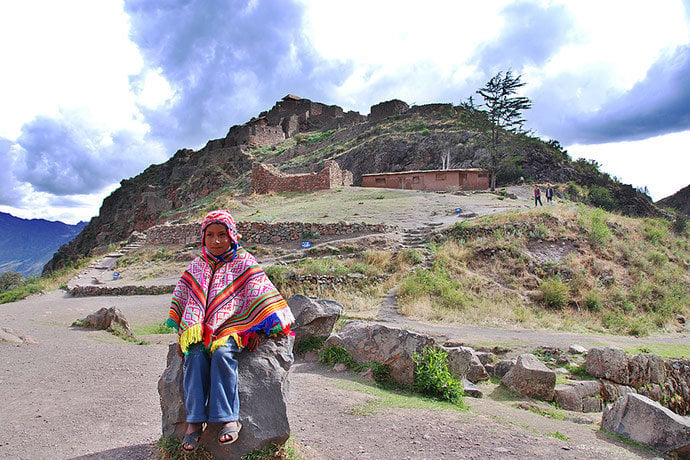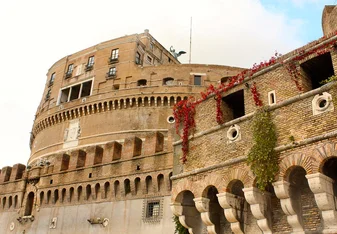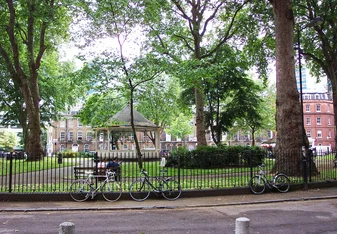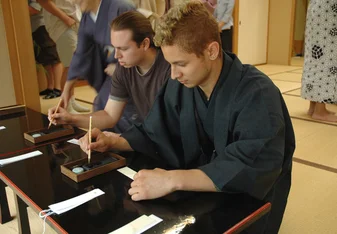
The Best Places to Study History Abroad for International Students
If you want to make history come alive, you'd be hard-pressed to find better destinations than Go Overseas' list of the best cities for studying history abroad.
Why study history abroad?
Regardless of the subject, studying abroad is always an opportunity for immense personal growth, experiential learning, and a chance for cultural immersion. For history majors, the benefits of studying abroad go far beyond that, as it's an opportunity to experience firsthand what remains of the places that you're learning about in the classroom. You'll gain a whole new appreciation for the people and places you've learned about when you are able to experience these historical sites and walk the very halls where these events took place.
Studying abroad is also a chance to live and learn in any one of the great cities of the world. While there are no wrong choices when choosing which city best fits your goals, here are some of the top destinations to study abroad for history students.
How did we pick these locations?
Lastly, we used our own industry knowledge to ensure we're recommending locations that are vetted both by you, the community members, and us, the experts, so that we feel confident the locations included are the best of the best!
Best for political history: Athens, Greece

Studying abroad for a semester or a year in Athens, Greece puts you face to face with the city that inspired the pontifications of Socrates, Plato, and Aristotle. Anyone interested in Greek mythology will treasure a visit to the Parthenon or the Acropolis, and students of politics will relish their time in the city that invented democracy. Considering the invention of suffrage related to government decisions and the over 3,000 years of civilizations to inhabit Athens, there is no better place to learn the history that laid the groundwork for modern-day democracies.
The official language spoken in Athens is Greek, but there are fully English-taught courses at Universities in Athens, so the language barrier for English-only speakers is manageable. Additionally, English is commonly spoken as a second language by citizens of Greece, especially among younger people.
Cost of living
Athens is a relatively inexpensive European city, especially considering it's a highly desirable destination for travelers. According to Numbeo, the average rent expense in Athens is between $474 and $515, depending on location. For non-EU international undergraduate students, yearly tuition is between $1,500 - $2,000 when directly enrolling. Students participating in a study abroad program should expect to pay much more than this. That said, there are scholarship and financial aid opportunities to offset the cost.
Safety
Athens is a very safe city in Europe, with nearly 4 million residents. The crime rate is low, and crime related to travelers is mostly isolated to pickpocketing in and around public transportation and tourist sites. Travelers in Athens should practice their standard travel precautions to stay safe. These include not walking home alone at night, not trusting strangers with your luggage, and keeping important documents and items in a safe place.
Visa requirements
Citizens from the US can enter and stay in Greece for up to 90 days without a visa. However, studying in the country will require a valid visa for anyone outside the EU. To find the requirements for a student visa in Greece, visit the Greek Ministry of Foreign Affairs website.
Popular history study abroad programs in Athens
Best for architectural history: Rome, Italy

An obvious choice for a history lover, Rome is the capital of the Roman Republic and later the Roman Empire. A trip to Rome today allows budding historians to immerse themselves in the civilization that brought us gladiator fights. Brush up on your Latin and stroll through ancient sites like the Forum, Coliseum, and Circus Maximus, taking in the remarkably well-preserved ruins of Rome’s glory days.
While the official language spoken in Rome is Italian, many universities offer entirely English-taught courses. Additionally, most citizens in Rome also speak English, so the language barrier should be manageable.
Cost of living
The average rent expense in Rome, according to Numbeo, will vary greatly depending on how close to the city center you live. Average rent prices range from $771 to $1,127, which is still relatively affordable compared to other popular European cities. There are also many funding and scholarship opportunities for students interested in studying abroad in Rome.
Safety
While street crime is a risk in big cities all over the globe, Rome is generally quite safe. Trains to and from the airport are prevalent for petty theft and pickpocketing, so be extra vigilant when using public transport. Travelers should always pay close attention to their important documents and belongings when in tourist-dense areas.
Visa requirements
A student visa is required to study abroad in Italy for all non-European passport holders. To be awarded a student visa, applicants will have to prove they have access to $1,000/month for the duration of the stay. There are two types of visas that you may qualify for, depending on the length of your program. A type C visa is for programs shorter than 90 days and a type D visa is for programs that last longer than 90 days. You may be exempt from requiring a type C visa, depending on your nationality. Ensure you apply for the visa well before your study abroad semester begins, as the process can take as long as 11 weeks to complete. To find the specific visa requirements to study in Italy and apply, visit the Ministry of Foreign Affairs and International Cooperation Study in Italy website.
Popular history study abroad programs in Rome
Best for ancient civilization history: Cusco, Peru

Often referred to as the "Archaeological Capital of the Americas," Cusco is a fantastic place for students to learn about the arts and cultural history of the Incas. Cusco also served as the Spanish conquistadors’ home base for the colonization of the rest of the Andes. A semester or summer absorbing the breathtaking beauty of the Andes and Machu Picchu, the “lost city of the Incas,” is an unbeatable way to study Peru’s history.
For students learning Spanish, the opportunity to immerse themselves into the language while also living near a UNESCO heritage site with a rich and mysterious history is an incredible opportunity. What better place to learn about the region's history than the former capital of the Inca Empire? Although, non-Spanish speaking students will likely struggle with the language barrier.
Cost of living
The cost of living in Cusco is very affordable, with the average monthly rent ranging anywhere from $269 up to $643, according to Numbeo. Other expenses, like food and entertainment, are also very affordable in Peru, meaning you can make the most out of a modest budget while studying abroad.
Safety
As Cusco's economy is mainly driven by tourism, expect opportunistic crime, including pickpocketing and muggings, to take place. As long as you take precautions like locking up valuables and not walking home alone at night, Cusco is generally a safe city. Like most places, certain areas throughout the city are much more dangerous to tourists than others. Take extra precautions when in the Santiago district, known for violent crime.
Visa requirements
Study abroad students in Peru need either a tourist visa (in certain circumstances) or a temporary student visa (Formación temporal). This visa permits you to study or intern for up to 12 months. Any courses with a longer duration require a resident student visa. Learn more about the exact requirements on the Consulate General of Peru website.
Popular history study abroad programs in Cusco
Best for art history: Paris, France

A semester in Paris is one of the best ways for lovers of history to immerse themselves in the wonders of the past. Visit Louis XIV’s palace at Versailles to bask in royal excess or stop at the Bastille to celebrate the triumph of republican government in the French Revolution. Of course, there is no better place to study art history, from the classics at the Louvre to the modern art at the Pompidou center.
While non-French speakers may be intimidated by the language barrier, there are English programs. That said, the opportunity to immerse yourself in the French language will only add to the experience and your appreciation for the beautiful city of Paris.
Cost of living
The average rent expense in Paris outside the city center is $999 a month; however, living in the city center is much more expensive, with an average rent of $1,426 a month. For more information on expected expenses, read this article on how much it costs to study abroad in France.
Safety
There are many reports of attacks on tourists and pickpocketing in Paris, so travelers should have an elevated awareness of their surroundings and avoid walking alone at night. Don't carry large amounts of cash and keep your important documents and valuables safe when traveling in Paris. Also, consider carrying an insurance policy covering theft if traveling with expensive items like cameras or computers.
Visa requirements
Depending on the course length, there are multiple types of visas relevant to study abroad students. A short-stay visa will cover you for a program shorter than 3-months, but you will need a long-stay visa for programs that last longer than that. Learn more and apply on the France-Visas government webpage.
Popular history study abroad programs in Paris
Best for economic history: London, England

London’s lengthy history, vital to the development of the Western world, dates back to its founding by the Romans, who called it Londinium. Once the center of an empire on which the sun never set, London is an incredible place to ponder the development of parliamentary government, the famous monarchic dynasties, and the double-decker bus. Additionally, London is home to the London Stock Exchange, which today is one of the most powerful financial markets on earth, but dates back to humble beginnings in the 17th century. London has been at the center of economic development around the world and is a perfect place to learn economic history.
London is also conveniently located for you to visit other countries in the UK, like Scotland, or to quickly fly to countries throughout Europe. With no language barrier for English-speakers, London is an excellent destination to study abroad and use as a central location to travel from during long weekends or before and after your program.
Cost of living
London is a very expensive city, with average rent expenses ranging from $1,742 to $2,339, according to Numbeo. That said, many people find studying abroad in London to be well worth the expenses, and there are many scholarship opportunities to offset the high cost.
Safety
As a top tourist destination, London does have a risk of street crime and pickpocketing for travelers. However, overall the city is very safe. Visitors to London should be aware not to walk home alone at night after drinking and pay close attention to their belongings when utilizing public transportation. Taxis are prevalent and reliable in London, making them an excellent choice for safety-conscious travelers to get around, especially at night.
Visa requirements
Non-European students need to apply for a student visa to study abroad in the UK. The application process is reasonably straightforward but requires you to provide your biometrics, travel history, and proof of finances for the entirety of your trip. Additionally, citizens from certain regions must provide a chest x-ray to screen for tuberculosis. The application process includes a $1,350 payment into the NHS, which will cover any medical expenses while you're in England. Apply for a student visa on the UK Visas and Immigration website.
Popular history study abroad programs in London
Best for cultural history: Tokyo, Japan

A busy, super-modern city with a complex recent and distant past, Tokyo is a great place for a historian to spend time. Originally a small fishing village called Edo, Tokyo became the imperial capital of the Meiji emperor. Today, it is a bustling commercial center and one of the world’s leaders in finance. To take a break from the rapid pace, you can pay a visit to the Meiji Shrine, a peaceful oasis within a busy metropolis.
While the language barrier will likely challenge you if you don't speak Japanese, don't let this hurdle dissuade you. Japan has entire degrees offered in English, and most of your peers will be able to communicate with you in English as well. That said, you are sure to grow your appreciation for the people and history of japan through being immersed in Japanese culture.
Cost of living
While Tokyo is an expensive city, affordable rent can be found both in and outside the city center. According to Numbeo, the average rent expense ranges from $712 to $1,270 a month. That said, food, transportation, and other expenses are higher than in the US and throughout most of Europe.
Safety
According to the Economist Intelligence Unit, Tokyo is the safest city in the world. With that said, Tokyo is a densely populated city, so travelers should always follow general safety guidelines and be careful when walking around at night or while using public transportation, but the risk of being a victim of violent crime is extremely low in Tokyo. However, Tokyo is at risk of volcanos, tsunamis, and earthquakes, so always have a plan for what to do if a natural disaster strikes.
Visa requirements
For any programs that last longer than 90 days, students are required to obtain a student visa before entering Japan. The application process may require you to attend an in-person meeting at your local consulate, which will be at your expense if that involves travel. Visit the Embassy of Japan Study webpage to review the requirements and apply.
Study history from the source
Learning the history of a culture or country takes on a new level of significance when you're at the very source and can learn from the ancestors of the people you're reading about. Experiencing cultural customs and visiting deeply meaningful places provides an experience that cannot be matched in a textbook or from a documentary.
Studying history abroad will give you an entirely new level of appreciation for the deep and complicated stories that have led to the culture you will be immersed in, and that has left these historic buildings and landmarks in which awe us still to this day. No matter where you choose to study history abroad, you will return home a better student, person, and historian with the firsthand knowledge you gain.
Note: Take the next step on your journey to study history abroad by searching for programs and reading real alum reviews to find the best experience to fit your goals.
























